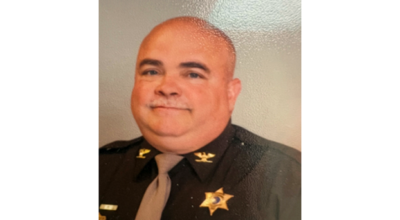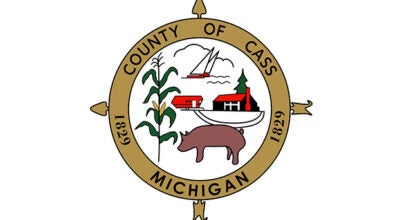County seeking answers on fracking issue
Published 9:46 am Thursday, September 25, 2014
A five-page permit from the Michigan Department of Environmental Quality has sparked a debate within the county about what, if any, control they have over fracking within its borders.
Last week, Commissioner Bernie Williamson brought up the issue among her fellow board members during their committee of the whole meeting, after she received a copy of a DEQ permit that allows for an enhanced oil recovery process at a number of oil fields in Calvin Township. While this process — which uses a hydrocarbon-based solvent to increase the flow of oil — is not the same thing as the
controversial hydraulic fracturing, it raised a concern that it could one day be approved in Cass County.
“It’s a concern,” Williamson said. “There are enough questions out there about how fracking affects the environment. Michigan shouldn’t be a testing ground, especially here in Cass County. We want to make sure we don’t become victims of something that causes a lot of problems for us.”
The term “fracking” refers to the process of drilling and injecting fluids at a high rate of pressure into the ground in order to fracture deep rock formations, which allows oil, natural gas and brine to flow more freely. While this method has allowed for additional mining of natural resources from U.S. soil, it has also drawn criticism due to the potential effects it causes to the environment. Opponents have said that the process can cause water contamination, air pollution and even earthquakes.
The topic was first brought to the attention of the board in July, when Williamson presented the other members with a resolution from Jefferson Township that called for the formal opposition of fracking within their limits. At that time, the board tabled a motion to declare an official stance from the county.
Williamson and fellow Commissioner Roseann Marchetti have continued to investigate what authority local officials have when it comes to the issuing of fracking permits.
“Right now, we’re in an information gathering phase, and we intend to do just that, to find out as much as we can,” Williamson said.
According to officials with the DEQ, neither counties nor townships possess the authority to issue or revoke licenses for oil drilling. While cities and villages do have some limited control due to zoning ordinances, state law precludes involvement at the county level, said Harold Fitch, a supervisor with the DEQ Office of Oil, Gas and Minerals.
“We do accept public comments, which we take into account,” Fitch said. “We also give notice to township supervisors, which they can use to give us comments or distribute information to their residents. The clerk also gets a copy of the permit.”
The permit in Calvin Township issued to Columbus Oil and Gas was approved by Fitch on Aug. 26. Though the agency held a public hearing on the matter at its Lansing office in June, they received no comments from Calvin residents.
“We have a lot of enhanced oil recovery projects around the state,” Fitch said. “Many of them have operated for many, many years with no significant problems.”
One way that the Calvin permit differs from most requests his office receives is that Columbus requested the use of a hydrocarbon solvent versus using water flood injection, which is the method most companies use to increase oil viscosity in older wells, Fitch said.
This fact raised a red flag with Williamson as well.
“When I heard they were injecting fluid in the ground, I had concerns about it,” Williamson said. “With chemicals, you’re changing the environment, potentially even the geography of the area.”
Despite the concerns, Williamson said the DEQ has been cooperative with the county’s request for additional information about oil drilling procedures. Fitch said that over 12,000 wells have been hydro fractured in Michigan since 1952.
“We never had a problems with fracking,” Fitch said. “It’s had a pretty long safe history in Michigan.”
While the jury is still out there about the long-term consequences of the extraction method, Williamson and other members of the board will continue to pursue any avenues that allow them to assert more control as to its future in Cass County.
“I think if anything, this is a wakeup call,” Williamson said. “This issue is being raised, and this is our opportunity to educate ourselves and be aware of what’s going on. All too often, something happens and we don’t become aware of the consequences until after it’s over.”






